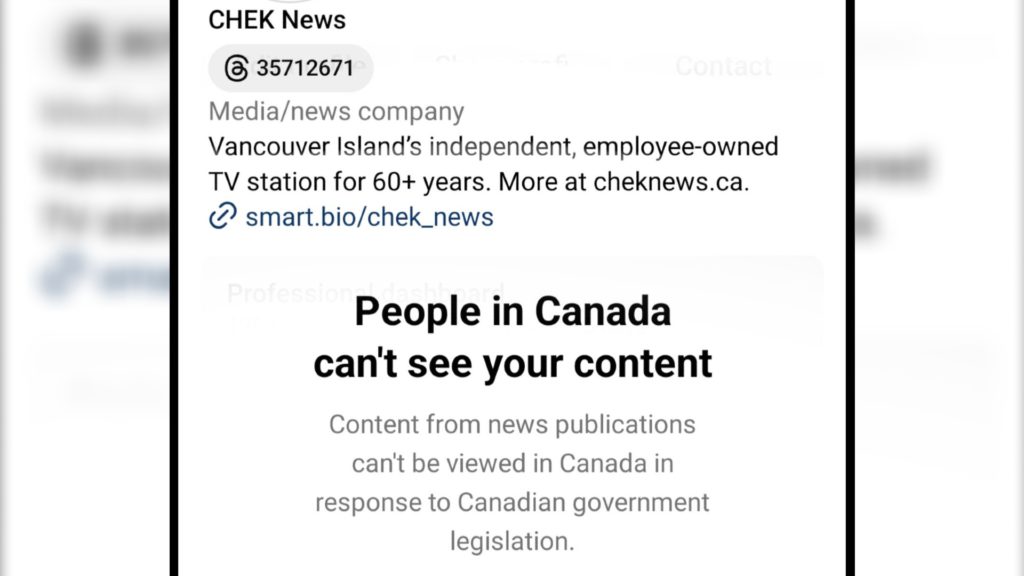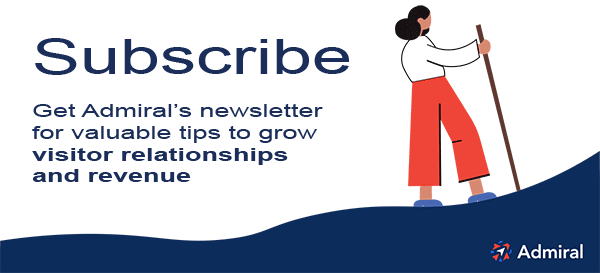Recently, two tech giants, Facebook and Google, have taken a significant step in response to a legal ruling from Canada. The ruling has stirred heated debates and led both companies to pull back news results from their platforms. Several publishers are reporting that their news is already being blocked in Canada.
This decision, affecting millions of Canadians who rely on these platforms for news, has raised concerns about the implications on media diversity, information accessibility, publisher revenues, and the future of journalism. In this blog post, we will explore the reasons behind this move, its potential consequences, and the broader implications for the media landscape in Canada.
Key Facts for Publishers:
-
Legal Ruling: The Canadian government implemented a law requiring digital platforms like Facebook and Google to compensate news publishers for displaying their content in search results or on social media feeds.
-
Tech Giants' Response: Facebook and Google protested against the law, arguing it would hinder their operations. Facebook chose to restrict the visibility of news articles, while Google threatened to withdraw its search engine entirely from the Canadian market.
-
Meta Is Testing Blocks of Canadian News: Multiple reports and screen captures from Canadian news sites have verified that Meta has begun blocking access to news in Canada.
- Traffic and Revenue Impact on Publishers: Publishers in Canada should expect impacts to their traffic and revenue unless an agreement between Meta and the government is resolved. Some Canadian publishers rely on Facebook and Google for 50% of their traffic.
-
Media Diversity at Risk: With news results pulled back, smaller and local news outlets may find it challenging to reach a broad audience, potentially reducing their visibility and revenue streams.
-
Information Accessibility: The withdrawal of news results could compromise the accessibility of reliable news, as users may turn to alternative sources, increasing the spread of misinformation and fake news.
-
Journalism and Digital Media: The situation highlights the tension between traditional journalism and digital media platforms, raising questions about the role of tech giants in the media landscape.
Interested in more ways to monetize your website?
email & social media signups | donation campaigns | authenticated users
Let's talk. Request a demo today:

The Canadian Legal Ruling
The saga began when the Canadian government implemented Bill C-18, the Online News Act . The new law compels digital platforms, notably Facebook and Google, to compensate news publishers for displaying their content in search results or on their social media feeds.
The legislation aimed to level the playing field for media outlets struggling with declining revenue and circulation, as digital platforms were benefitting from the online presence of news articles without providing adequate compensation to the content creators.
The tech giants' response was swift and unequivocal. Both companies protested against the law, arguing that it would infringe upon their ability to operate freely on the Internet.
Google even went so far as to threaten to pull its search engine entirely from the Canadian market, while Facebook chose to restrict the visibility of news articles on its platform. Google has said it will block Canadian news sites and will be shutting down the Google News service in Canada.
Publishers Report News Blocks by Meta
The Tyee, an online magazine, CHEK News, and the Nelson Star reported that their accounts are already being throttled by Meta. In the case of Tyee, their Instagram account was blocked and they received the following message:
David Beers, the founder of The Tyee, calls the move by big tech "a neutron bomb" on news in Canada.
Meta has shut down my paper’s Instagram page. I knew this was coming but didn’t expect it to be so soon. pic.twitter.com/a2vMmnUJnu
— Tyler Harper (@tyler_harper) July 14, 2023
Meta responded to CBC News that the blocks were planned tests in preparation for complying with Bill C-18.
In an email to CBC, Lisa Laventure of Meta said, "These randomized tests are ongoing and will help us build an effective product solution to end news availability in order to comply with the Online News Act."
Meta response June 22nd, 2023: Changes to News Availability on Our Platforms in Canada
Impact on Revenues for Canadian Publishers
The impact is likely greatest for smaller and local Canadian publishers who rely heavily on social media platforms for distribution; they may face considerable challenges.
As reported in the Toronto Star: Phillip Crawley, the publisher and CEO of the Globe and Mail, said a potential Facebook news ban in Canada would mean a loss of “millions of dollars” for the national newspaper.
Jeff Elgie, the CEO of community news company Village Media, told regulators “If that traffic was lost, the business would be over." Village Media owns 25 local news publications across Ontario; Google and Facebook generate more than 50 per cent of their traffic, according to Elgie.
"If that traffic was lost, the business would be over." - Village Media CEO
With limited resources and without the backing of established brands, they could find it difficult to navigate alternative distribution channels effectively. As a result, smaller publishers might face a decline in ad revenue due to decreased reach and ad impressions.
Some established and reputable news outlets may have already developed a loyal audience or have diversified their traffic sources, which has shielded them from the immediate repercussions of the tech giant's actions.
However, even for larger publishers, the downstream negative effects on news media revenue can grow. The reduced visibility of news articles on these platforms might indirectly impact the discoverability of content, limiting the potential for new readers to find and engage with their articles. This could have a cascading effect on traffic and ad revenue over time, as well as a chilling effect on any innovation or potential media startups in Canada.
Consequences for Media Diversity
The impact of Facebook and Google's withdrawal of news results is far-reaching, with the potential to disrupt media diversity in Canada. The news articles shared and promoted on these platforms often expose users to a wide range of perspectives, sources, and topics. Without these platforms serving as a distribution channel, smaller and local news outlets may find it challenging to reach a broad audience, leading to a reduction in their visibility and potential revenue streams.
In essence, this decision could further concentrate media power in the hands of a few large news organizations, thereby limiting the diversity of voices and opinions available to the Canadian public.
Information Accessibility and the Spread of Misinformation
News articles shared on Facebook and Google's platforms serve as a vital source of information for millions of Canadians. With these tech giants pulling back on news results, the accessibility of reliable, accurate, and timely news may be compromised. Users may turn to alternative sources, some of which may not adhere to journalistic standards, leading to the proliferation of misinformation and fake news.
The withdrawal of news results also raises questions about the role of these platforms as gatekeepers of information. By selectively displaying news content, they may inadvertently control what information reaches the public, which poses a risk to the free flow of information and citizens' ability to make informed decisions.
Implications for Journalism and Digital Media
The recent ruling and subsequent actions by Facebook and Google highlight the growing tension between traditional journalism and digital media platforms. While the decline of traditional journalism's revenue models is undeniable, the relationship between these tech giants and news publishers remains complex.
On one hand, Facebook and Google drive significant traffic to news websites, providing valuable exposure and potential ad revenue. On the other hand, their dominance in the digital advertising space has contributed to the financial challenges and publisher cost-cutting measures.
The withdrawal of news results by Facebook and Google underscores the need for a comprehensive approach to sustaining journalism in the digital age. Finding a balance between compensating news publishers fairly and maintaining an open and free internet remains a daunting task that requires careful consideration from all stakeholders involved.
Similar Situation with Australian Publishers
In early 2021, Australia passed the "News Media Bargaining Code," which required tech companies like Facebook and Google to negotiate with news publishers and compensate them for displaying their content. In response, Facebook decided to block Australian users from viewing or sharing news links on its platform.
The move garnered significant attention and sparked debates about the power dynamics between tech giants and news publishers worldwide. After some tweaks to the Australian regulation, Facebook eventually lifted its news ban in Australia.
Three Ways Admiral Can Help Canadian Publishers Immediately
- Diversify Revenue Channels
- Quickly launch paid subscriptions with Admiral Visitor Relationship Management (VRM). With Admiral's single tag and easy paywall options, you can open new channels quickly and start growing renewable revenue this month. Quickly turn adblock users into subscribers with an ad-free subscription offer.
- Quickly launch paid subscriptions with Admiral Visitor Relationship Management (VRM). With Admiral's single tag and easy paywall options, you can open new channels quickly and start growing renewable revenue this month. Quickly turn adblock users into subscribers with an ad-free subscription offer.
- Optimize Existing Revenue Streams
- Don't leave money on the table in tough times. Leverage the industry's strongest anti-adblock solution, with Admiral. Admiral can combine ad reinsertion as well as visitor engagement to maximize your recovered revenues. With Admiral anti-adblock, you can launch in minutes, and add AI and machine learning features to drive multiples more than competitor or DIY solutions. (See Head-to-Head Adblock Recovery Case Study)
- Don't leave money on the table in tough times. Leverage the industry's strongest anti-adblock solution, with Admiral. Admiral can combine ad reinsertion as well as visitor engagement to maximize your recovered revenues. With Admiral anti-adblock, you can launch in minutes, and add AI and machine learning features to drive multiples more than competitor or DIY solutions. (See Head-to-Head Adblock Recovery Case Study)
- Build direct audience relationships
- Ultimately, your visitor relationships will drive your long-term success. Admiral VRM optimizes touch points along the visitor journey, growing revenues, brand affinity, pageviews, newsletter signups, and more. The right offer, at the right time, with a single tag and consistent user experience.
Don't wait. Publishers are in a perfect storm of regulation, big tech control, and empowered visitors. Schedule a demo of Admiral today.




